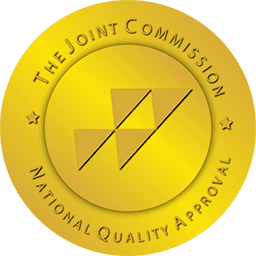Embarking on a career as a substance abuse counselor in New Jersey involves embracing a challenging yet profoundly rewarding role. Counselors in this specialty are dedicated professionals who work directly with individuals struggling with addictions to alcohol, drugs, and other substances. They play a critical part in the recovery process, offering guidance, support, and therapy to help clients achieve and maintain sobriety.
The responsibilities of a substance abuse counselor are diverse and include developing treatment plans, conducting group and individual counseling sessions, and collaborating with other healthcare professionals to provide a holistic approach to recovery. Moreover, they must possess a deep understanding of addiction’s psychological and physical aspects, as well as the empathy and communication skills necessary to build trust with their clients.
As the first step towards this noble profession, it is essential to comprehend the educational requirements, necessary certifications, and the varied work environments in New Jersey. The journey to becoming a substance abuse counselor is one of continuous learning and personal growth, enabling you to make a significant impact on the lives of those afflicted by addiction.
Yes, You Can Get Your Life Back. Call Absolute Awakenings Today. With our trained and compassionate professionals in your corner, freedom can be yours. All it takes is you choose yourself. Choosing a better tomorrow. absostage.wpengine.com
Educational Requirements for Counselors in New Jersey


Prospective substance abuse counselors in New Jersey must meet specific educational criteria to establish a foundation for their career. The journey begins with a high school diploma or equivalent, which is the minimum requirement for entry-level positions. However, to advance in the field, further education is crucial. A bachelor’s degree in counseling, psychology, social work, or a related field is often required for many counseling positions and is a prerequisite for licensure in the state.
Those seeking to deepen their expertise and increase their opportunities may pursue a master’s degree in a relevant discipline. Advanced degrees not only provide more comprehensive knowledge and skills in substance abuse counseling but also satisfy the educational requirements for licensure as a Clinical Alcohol and Drug Counselor (LCADC) in New Jersey.
Additionally, New Jersey has certifications for those who do not hold a master’s degree but have completed a requisite number of college credits and supervised clinical experience. The Certified Alcohol and Drug Counselor (CADC) requires 270 hours of education in the field and 3,000 hours of supervised experience. This certification is often considered a stepping stone towards the LCADC.
In summary, to pursue a career as a substance abuse counselor in NJ, aspirants must be prepared to invest in their education. This commitment to learning equips them with the theoretical knowledge and practical skills necessary to support individuals in their journey to recovery.
Certification Process for Substance Abuse Counselors


Upon satisfying the educational prerequisites, the next step for aspiring substance abuse counselors in New Jersey is to navigate the certification process. This process ensures that counselors have met all the state-specific professional standards to provide effective and ethical treatment for substance use disorders.
The process begins with the attainment of a Certificate of Competency, which is awarded by the Addiction Professionals Certification Board of New Jersey (APCBNJ) upon successful completion of the required education and supervised practical experience. Following this, candidates must pass a comprehensive examination that tests their knowledge and skills in the domain of substance abuse counseling.
For the Certified Alcohol and Drug Counselor (CADC) certification, candidates must complete 3,000 hours of supervised work experience, which includes 300 hours of practical training in core competency areas. After fulfilling these requirements, candidates sit for the IC&RC Examination for Alcohol and Drug Counselors offered by the International Certification and Reciprocity Consortium.
Those aiming for the Licensed Clinical Alcohol and Drug Counselor (LCADC) designation must demonstrate a higher level of education and experience. This includes completion of a master’s degree, additional supervised clinical experience, and passing the Advanced Alcohol and Drug Counselor Examination. The LCADC is a higher credential that allows for private practice and is recognized by the state as a clinical license.
It is essential for candidates to stay informed about the latest certification requirements, as these may evolve to reflect changes in the field or new state regulations. By achieving certification, counselors validate their expertise and commitment to upholding the highest professional standards in addiction treatment.
Gaining Experience: Internships and Supervised Hours
Gaining practical experience is a pivotal part of becoming a substance abuse counselor in New Jersey. As part of the certification requirements, candidates must accumulate a certain number of supervised hours working directly with clients who have substance use disorders. This hands-on experience is crucial for developing the skills and competencies necessary for effective counseling.
Internships offer a valuable opportunity for candidates to earn these supervised hours while also learning from experienced professionals in the field. Many educational programs in substance abuse counseling include an internship component, which can be completed at various treatment facilities, community organizations, or private practices specializing in addiction treatment.
The number of required supervised hours varies depending on the level of certification being pursued. For the CADC certification, candidates must complete 3,000 hours of supervised work experience. This experience should cover a range of competencies, including assessment, treatment planning, counseling, case management, client education, and professional and ethical responsibilities.
During the supervised hours, candidates are expected to work under the guidance of a qualified supervisor. This supervisor is responsible for providing regular feedback, helping to refine counseling techniques, and ensuring that the intern adheres to professional standards and ethics. It’s also an invaluable period for the candidates to learn how to navigate the complexities of the treatment process and to build a network of professional connections that can support their future career.
Ultimately, the completion of internships and supervised hours not only fulfills a requirement but also enriches the candidate’s understanding of the field. It prepares them for the realities of working with a diverse clientele and contributes to their overall professional development.
New Jersey State Regulations and Application Procedures


In New Jersey, the process of becoming a substance abuse counselor is governed by specific state regulations that ensure the quality and professionalism of those entering the field. The Alcohol and Drug Counselor Committee under the New Jersey Board of Marriage and Family Therapy Examiners is the body responsible for the certification and licensing of substance abuse counselors in the state.
To apply for certification or licensure, candidates must first ensure that they meet the educational and experiential prerequisites as outlined by state regulations. Upon completion of these requirements, the next step is to submit an application to the Alcohol and Drug Counselor Committee. The application process involves a thorough review of the candidate’s educational transcripts, proof of supervised work experience, and any other supporting documentation that verifies the candidate’s qualifications.
Additionally, candidates must pass the required examination, which is often the IC&RC (International Certification & Reciprocity Consortium) exam for addiction professionals. The exam assesses the candidate’s knowledge and skills in areas that are essential for effective substance abuse counseling. Successful completion of the exam is a testament to the candidate’s readiness to serve in this critical role.
Once the application is approved, and the examination is passed, candidates may be granted certification as a Certified Alcohol and Drug Counselor (CADC) or licensure as a Licensed Clinical Alcohol and Drug Counselor (LCADC), depending on their level of education and experience. It is important to note that certifications and licenses are not permanent and require renewal every few years, which typically involves completing continuing education credits and adhering to ethical standards.
Understanding and navigating the application process is essential for prospective substance abuse counselors in New Jersey. Remaining abreast of any changes to state regulations is also imperative, as the field of addiction counseling is continuously evolving to meet the needs of individuals struggling with substance use disorders.
Career Pathways and Advancement as a Counselor
For those who have successfully navigated the certification or licensure process, a variety of career pathways and opportunities for advancement await in the field of substance abuse counseling in New Jersey. As a counselor, you may begin working in outpatient clinics, residential treatment centers, private practices, or hospital settings, providing crucial support to individuals battling addiction.
With experience, substance abuse counselors can move into supervisory or administrative roles, overseeing the work of other counselors and contributing to program development. Opportunities also exist in academic settings, where counselors can train the next generation of addiction professionals. In addition, some counselors choose to specialize in areas such as adolescent substance abuse, co-occurring disorders, or family systems, further enhancing their expertise and career prospects.
To advance in this field, counselors often pursue further education, such as a master’s or doctoral degree in counseling, psychology, or a related field. Advanced degrees can lead to higher-level positions such as clinical directors, program managers, or college faculty positions. Continuing education, involvement in professional organizations, and staying current with the latest research and treatment methodologies are also crucial for career advancement.
The journey of a substance abuse counselor is one of ongoing personal and professional growth. Each step of the way offers new challenges and opportunities to make a meaningful impact on the lives of those affected by addiction. If you’re ready to embark on this rewarding career path, or if you’re looking for support in your own journey to recovery, we encourage you to reach out.
Yes, You Can Get Your Life Back. Call Absolute Awakenings Today. With our trained and compassionate professionals in your corner, freedom can be yours. All it takes is you choose yourself. Choosing a better tomorrow. Visit absostage.wpengine.com to learn more.













